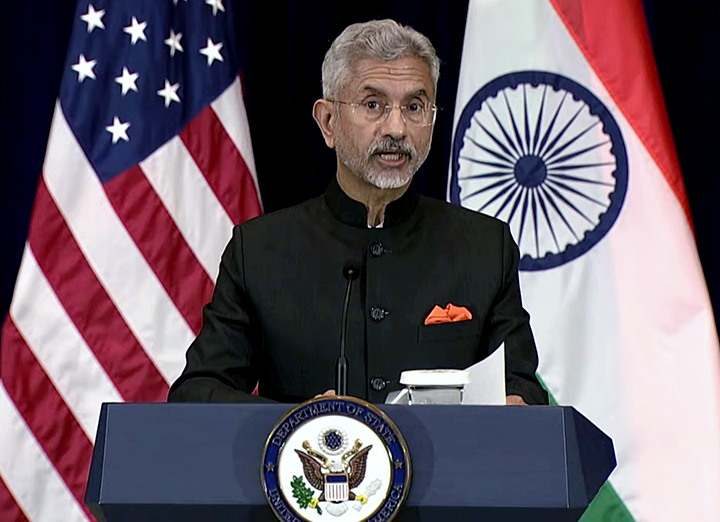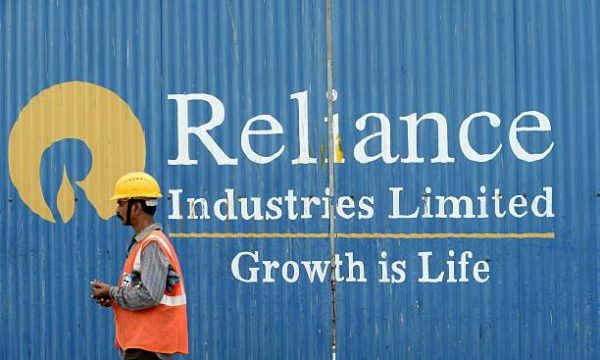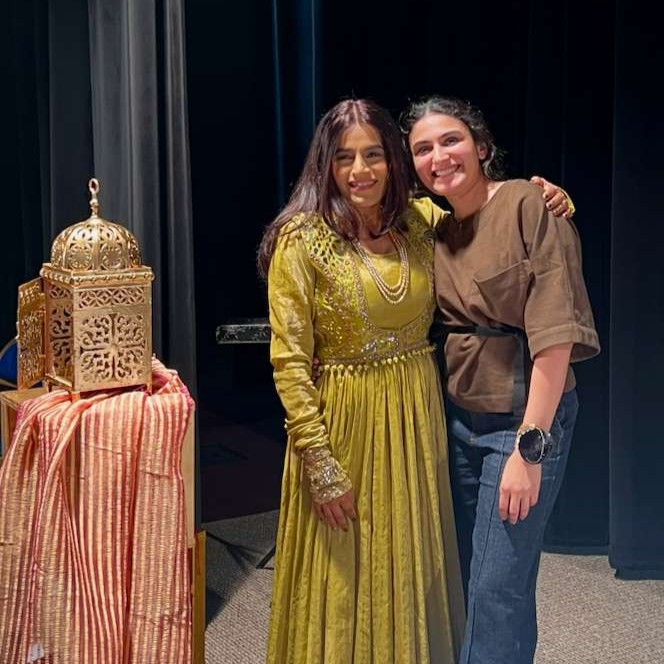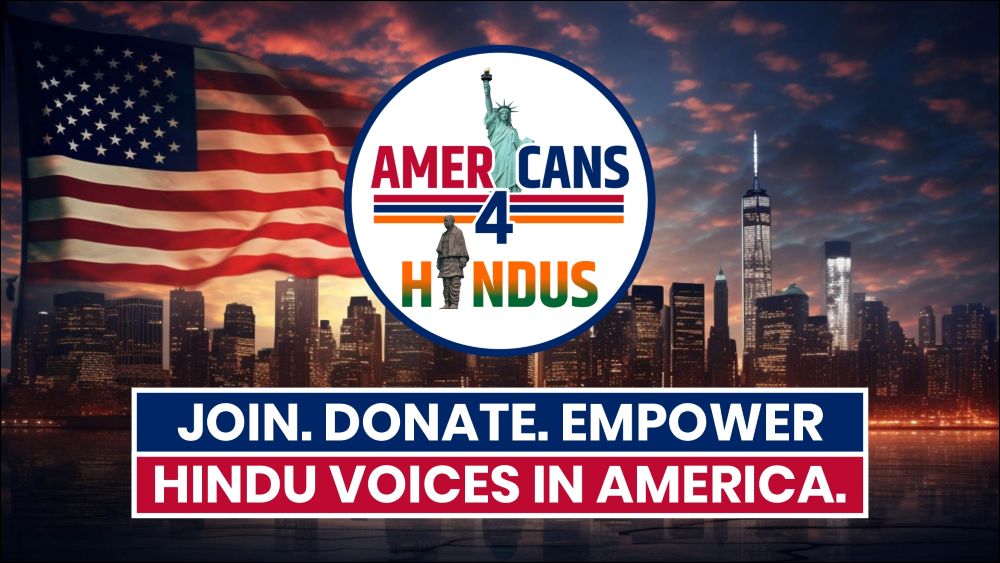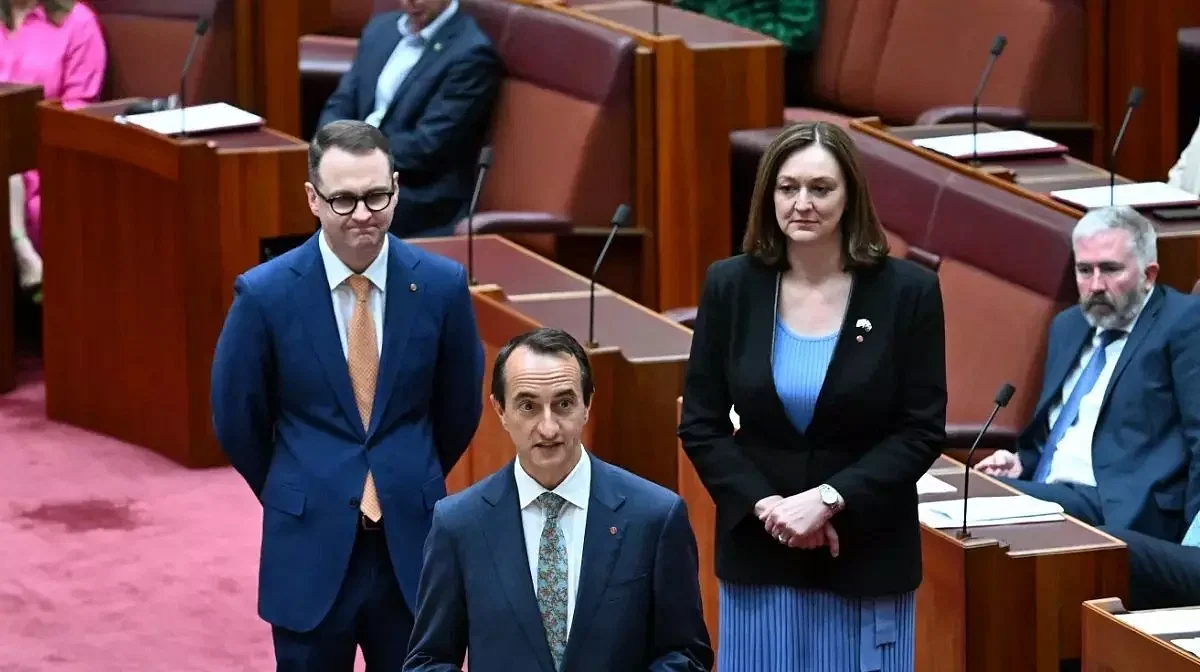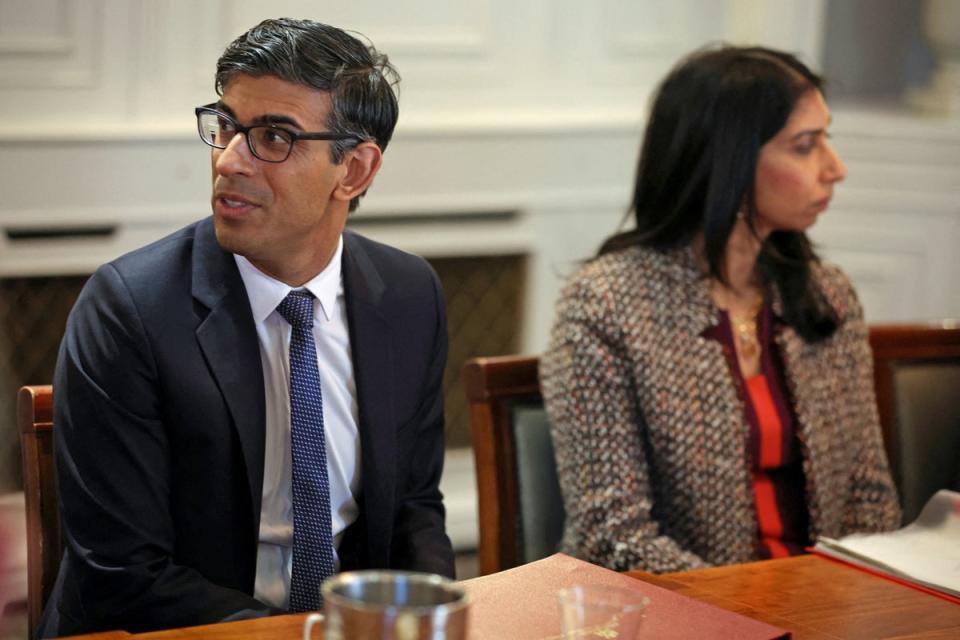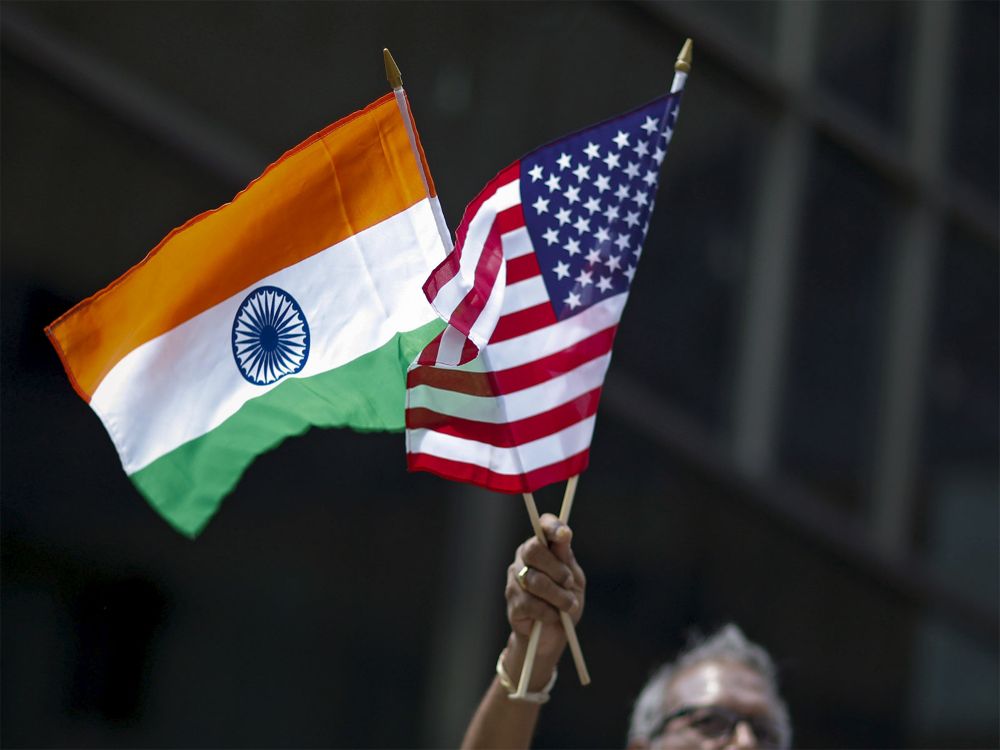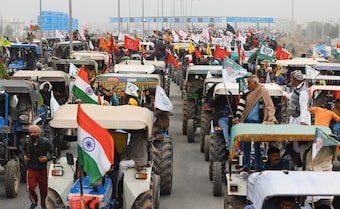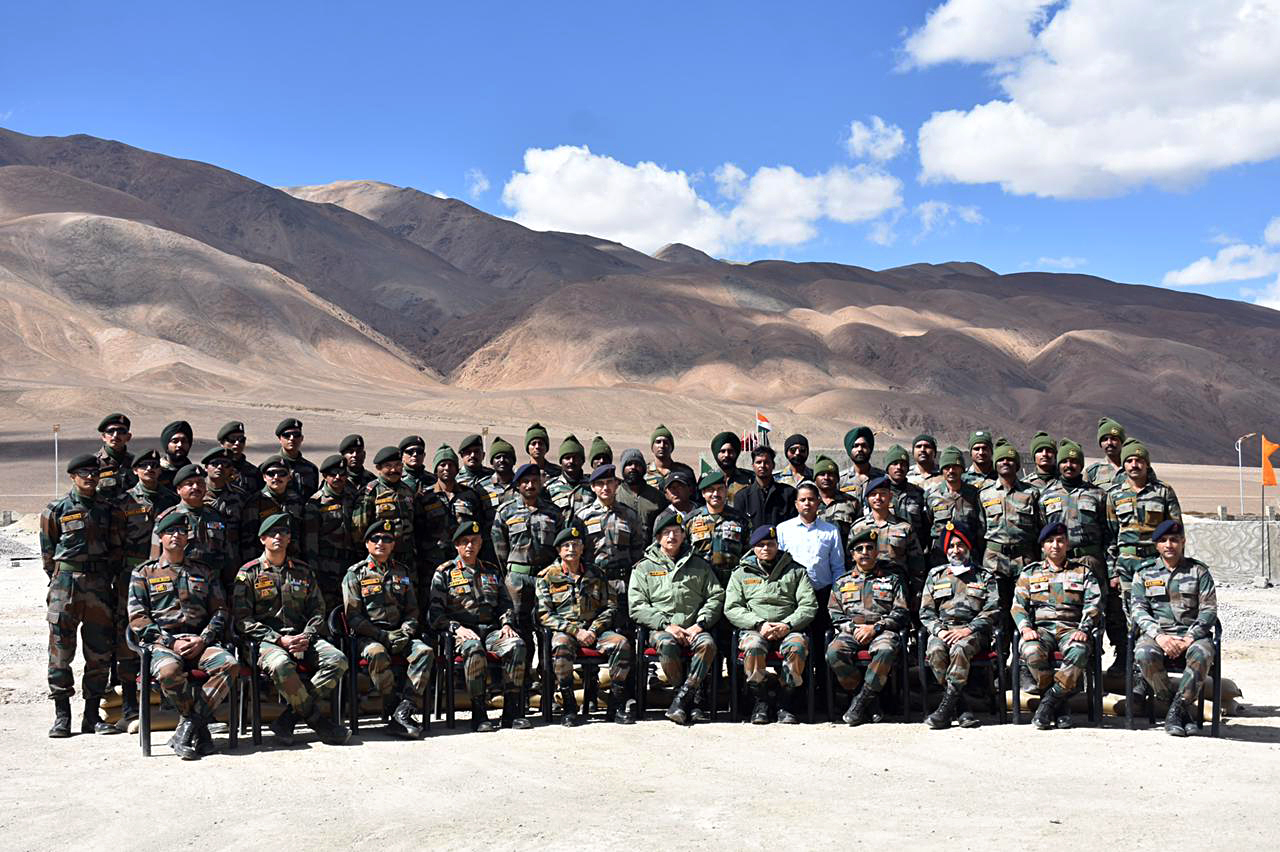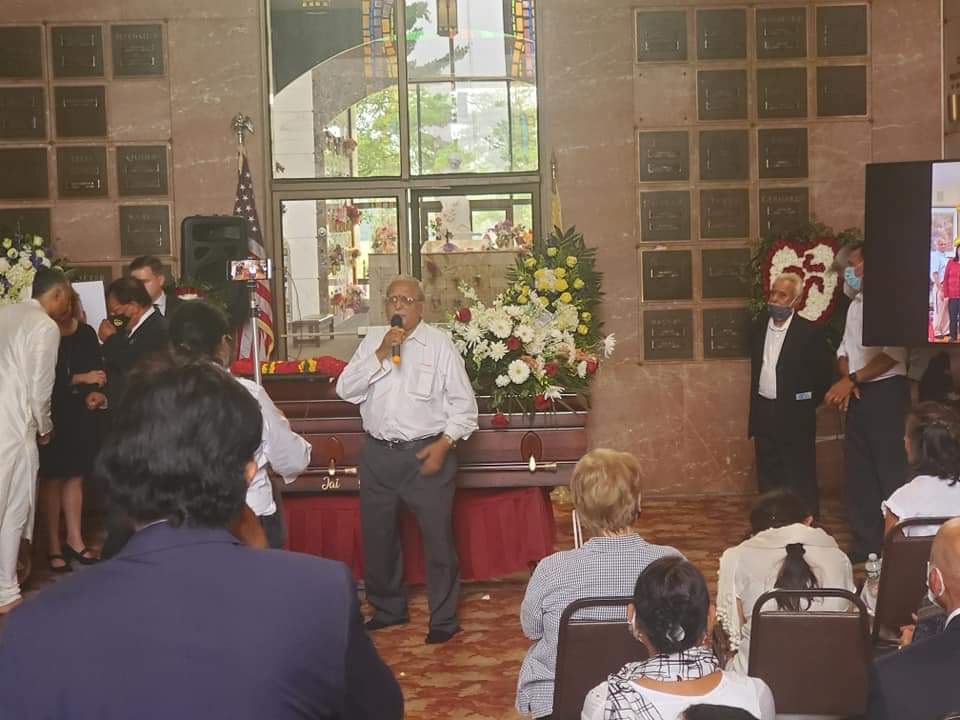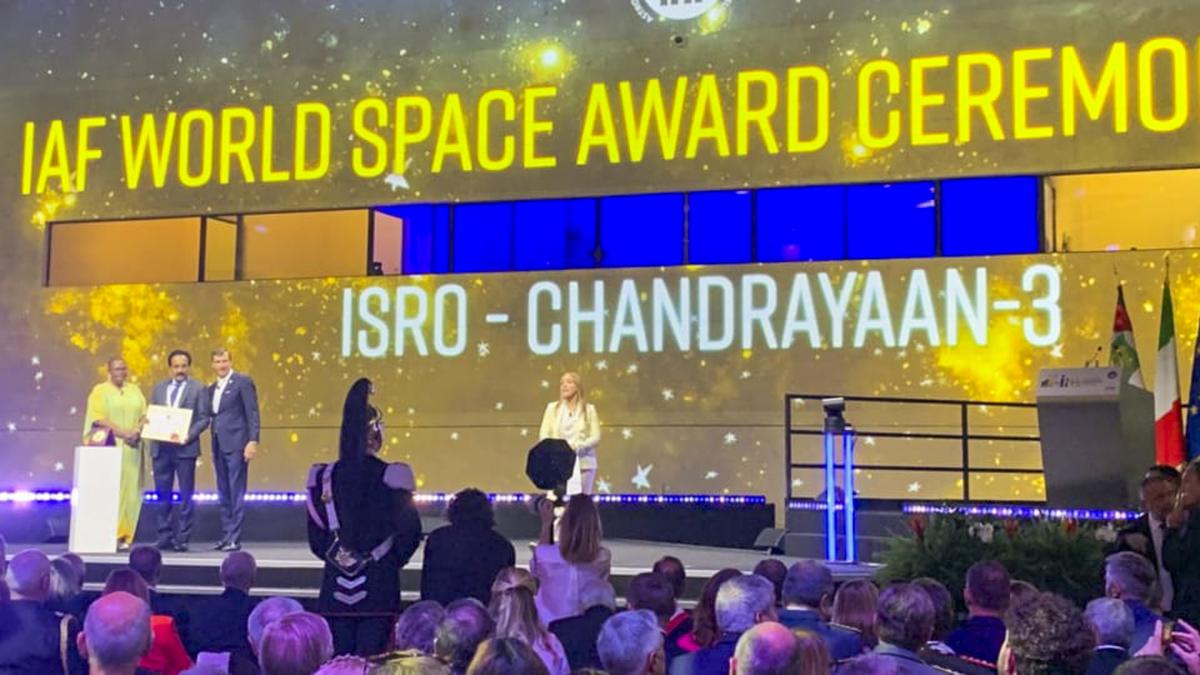External Affairs Minister underscores that both the nations understand on how to make space for each other and work despite not entirely agreeing on every aspect of every issue
Our Bureau
Washington DC/New York
External Affairs Minister S Jaishankar during a press briefing on Wednesday said that the relationship between India and US today impacts the rest of the world as there are a lot of countries which look to the association individually and bilaterally and hope for solutions which the world is searching for in many aspects.
“I think our relationship today impacts the rest of the world. There are a lot of countries which look to us individually and bilaterally for some part of the betterment which they hope for solutions which the world is searching for in many respects,” Jaishankar said during the press briefing. Referring to the bilateral consultations between the two countries as solid, positive and productive, Jaishankar underscored that the visit was very comfortable and he had some very good conversations with the Ministers in the US.
He further added that the bilateral conversations were framed under the pretext of larger global challenges and there was a very high degree of convergence as the priorities of India and the US, at times, have been different.
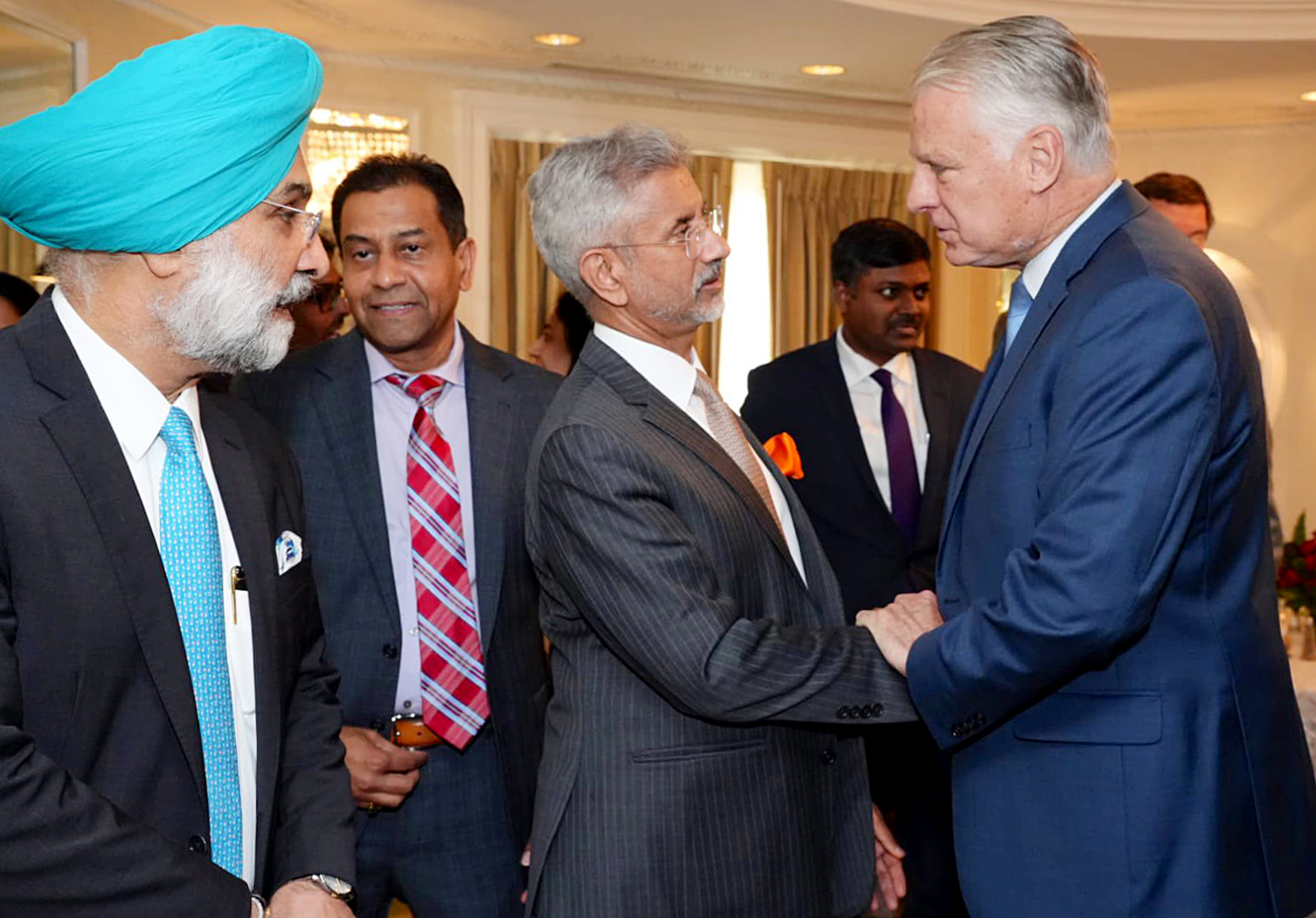
“That’s the sort of broad sense that I want to give you of a very solid, positive, productive bilateral conversation but framed in the context of larger global challenges where there was a very high degree of convergence on how we look at those challenges, we may articulate it a bit differently as we are oppositions and our priorities at some times will be different,” Jaishankar said in a statement during the briefing.
Describing the Washington visit as a comfortable one, the External Affairs Minister underscored that both the nations understand on how to make space for each other and work despite not entirely agreeing on every aspect of every issue.
“The good part of the relationship is today that we understand that we have to make space for each other and that we can work with each other even if we do not entirely agree on every aspect of every issue,” said Jaishankar.
Moreover, the EAM also held a conversation with the US Congress and the two sides had a good discussion on what was happening in the semiconductor industry and the ease of doing business in India.
Earlier, Dr Jaishnakar on Saturday concluded the high-level United Nations General Assembly debate in New York. The EAM was in New York from September 18 to 24. Notably, External Affairs Minister, Dr S Jaishankar, was welcomed by US Secretary of Defense Lloyd Austin to the Pentagon in an enhanced honor cordon ceremony on Monday.
Earlier on Tuesday, US Secretary of State Antony Blinken also noted that the partnership between India and United States is one of the most consequential in the world, during a joint press conference.
“The partnership between India and US is simply one of the most consequential in the world. It is to address any global challenge that our people face – health security, climate change, food security and upholding the free and open international order. Over the past years, we have made real progress in elevating that partnership bilaterally — through institutions like QUAD and G20 and international organizations at the United Nations,” Blinken said.
He also noted that India and the United States have made real progress in elevating their partnership through institutions like QUAD and G20 and international organizations at the United Nations.
Later, Dr Jaishankar said on Wednesday that India will continue to maintain a relationship with China that is based on “mutual” sensitivity, respect and interest. Jaishankar made the remarks while responding to a question on the consistent comments from Beijing about how things are “okay” between the two countries.
“The phase of emergency response since the Galwan Valley incident has basically come to an end, and the border situation is now switching to normalized management and control,” China’s Ambassador to India, Sun Weidong has said.
“What I have said, to my mind represents accurate policy assessment of where the state of our relations is. We continue to strive for a relationship with China, but one that is built on mutual sensitivity, mutual respect and mutual interest,” Jaishankar strongly asserted during a media briefing.
Meanwhile, Chinese ambassador to India Sun Weidong stated that the situation on the India-China border is “overall stable” and the two sides have moved from the “emergency response” that followed the clash in Galwan Valley in June 2020 to “normalized management and control”.
“I think if the spokesperson of a foreign ministry were to say something, I would urge you to see a comment from the spokesperson of the Foreign Ministry of the corresponding country,” Jaishankar responded when asked for his reaction to Weidong’s comment.
Jaishankars comments clearly go against the Chinese position that the overall India-China relationship is normal.
Just days before Jaishankar hit out at China, without naming it, as he spoke at the United Nations Security Council (UNSC) session on Ukraine. In a reference to Beijing’s decision to block the listing of terrorists, Jaishankar said: “The fight against impunity is critical to the larger pursuit of securing peace and justice. The Security Council must send an unambiguous and unequivocal message on this count. Politics should never ever provide cover to evade accountability. Nor indeed to facilitate impunity. Regrettably, we have seen this of late in this very chamber, when it comes to sanctioning some of the world’s most dreaded terrorists. If egregious attacks committed in broad daylight are left unpunished, this Council must reflect on the signals we are sending with impunity. There must be consistency if we are to ensure credibility.”
A day after his comment at UNSC, Jaishankar and his Chinese counterpart Foreign Minister Wang Yi had a brief encounter when photos were taken at a BRICS gathering in New York last week and there was an awkward “unease.” There were no bilateral meetings between the two foreign ministers.
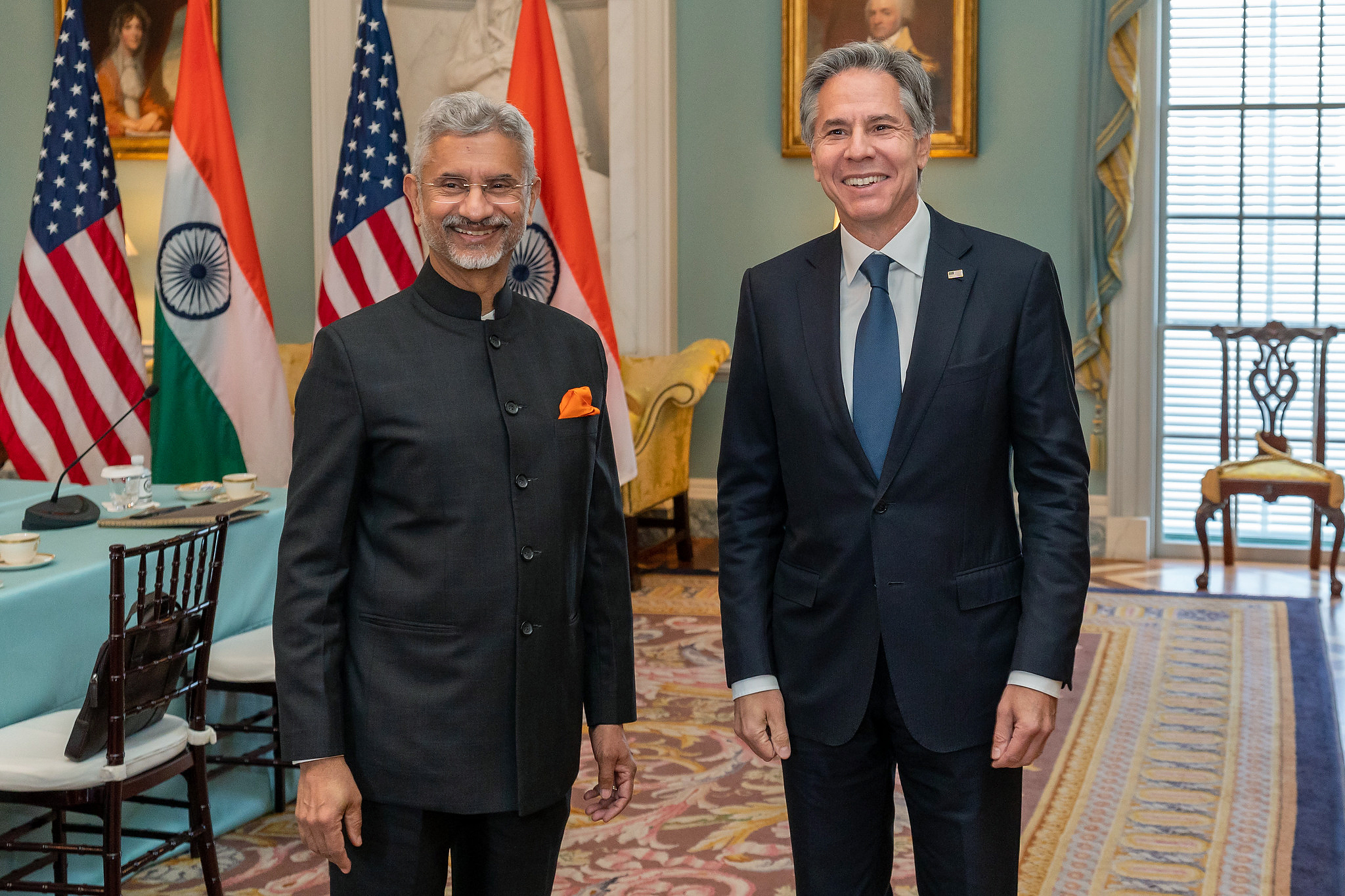
“Hope that things will improve…”: Jaishankar on long US visa delays
Our Bureau
Washington, DC
External Affairs Minister S Jaishankar has assured the Biden administration on Wednesday of all necessary cooperation to help it resolve the backlog of visa applications from Indians seeking to travel to the US. He further said that things will get better soon.
This comes a day after Jaishankar in his meeting with the US Secretary of State Antony Blinken raised the delay of visa applications to which the top American diplomat said he is sensitive to the matter and had a plan to address it. “But I again, feel this is an issue where obviously it’s mainly for the US but we will be supportive and collaborative,” Jaishankar told ANI in response to a question asked about people facing visa issues.
He further added, “To the people who are concerned about the visa issues, I would like to give the message that I understand their anxiety and the urgency and which is precisely the reason why I took up the matter,” and suggested Blinken that India will help the US to deal with the situation in a better way.
During the press briefing in Washington, the external affairs minister raised concerns about families not being able to meet and students waiting for a long time and underlined it as a ‘genuinely serious’ problem.
“In India, I mean, there are families who are not able to meet their relatives there and people who can’t keep their business appointments. There are students who are waiting for a long time. So, it’s a really it’s a genuinely serious problem of some magnitude.”
“But I’m very confident, with the sincerity that Secretary Blinken showed and the seriousness with which I hope they would address this and with any support that we can provide, we hope that things will improve,” the EAM added as he addressed the efforts of governments of both the countries during the press briefing.
Earlier on Tuesday, Blinken assured that the US is “building back” on the backlog of visa applications from Indian nationals and said the Biden administration has a plan that will play out in the coming months.
“We had constraints from COVID about the number of people we could have in our embassies at any one time etc. We are now building back very determined really from that surging resources. We have a plan when it comes to India to address the backlog of visas that have built up I think you’ll see that play out in the coming months,” Blinken said in a press briefing.
The remarks came as he met with EAM Jaishankar in Washington.
Jaishankar flagged concerns and challenges that Indians have been facing in receiving visas to work and live in the United States.
“There have been some challenges of late, and I flagged it to Secretary Blinken and his team, and I have every confidence that they will look at some of these problems seriously and positively,” Jaishankar said in his opening remarks.
The waiting period for Indians looking to secure a visitor visa to the US has gone up to 800 days, according to the website of the US State Department. The waiting period is nearly 400 days for student/exchange visitor visas and other non-immigrant visas.
















